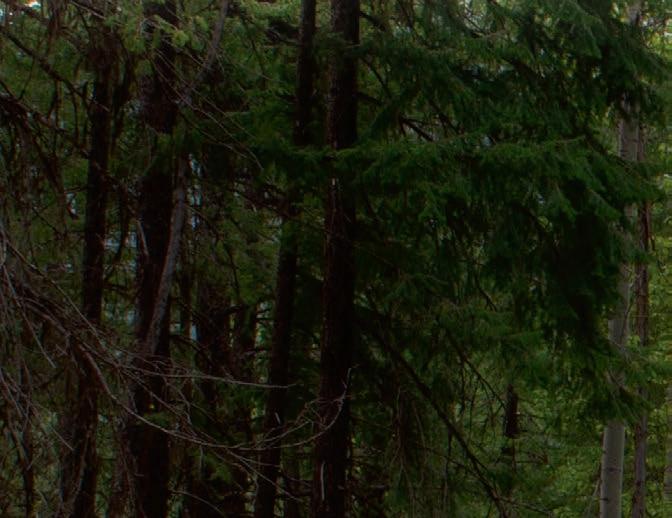
4 minute read
Owner, Ayako & Family
by Alessandra Gordon ’05
M
My parents met at the Okura Hotel in Tokyo, at opposite ends of its beloved 1960s lobby bar. By the end of the evening, they would share a single bar stool; four days later, she called him at midnight to wish him a happy birthday from the disco. I like to imagine my mother’s Old Fashioned and its orange peel glimmering like a disco ball across their faces the night they met. My mother, Japanese and native to the city, was living with her sister at the time; my father, blue-eyed and the second of four children from Atascadero, California, had yet to root in any one place and found home in his transience. She had ink black hair that perched woven at her shoulders and eyes that held onto everything. He, on the other hand, showed her how to let go.
It was three years of letter writing across oceans, cultivating love and shared imaginations, and a few visits to Anchorage, Alaska, where my father was finding a career in
PROFILE Alessandra Gordon ’05




the deepest waters of the Pacific, in steel containers filled with pollock and salmon that, if far enough away, looked like boro patchwork buttoning up the horizon. On one of their final stays together, he cooked her dinner and made a bright red rose from a tomato he peeled in one piece over the kitchen sink. It was two years before my grandfather gave the required blessing, and with it, my mother left Japan for Seattle in 1985. A year later, I was born.
When I was a child, I was so visibly theirs, with my father’s wispy cow-licked hair except the coarsest, deepest black of my mother’s. Just days after my birth, I would spend many hours moving my fingers and hands slowly in front of my own eyes, as if learning my own physical language.
“Let me show you how to peel an orange in one piece like a lotus,” my mother would say to me, the corners of her lips turned up and tucked into her cheeks. Her smiles would always have a familiar constriction about them, as if any softness of spirit could not be so freely given away — even up until the weeks before her passing in 2019, when her hands could no longer grip, could no longer hold steady, she was still able to peel an orange with tender intention. It feels fated that she and I went into the business of preserving fruit with our hands. My mother’s hands were her greatest tool; they delivered a reimagining of her immigrant identity through food in a way that simultaneously kept her expressions palpably tied to Japan and to her community in Seattle. Her hands created a space of existence that belonged nowhere and to no one and transferred her sense of belonging into her people, her culture, and her spirit. In 2009 the two of us met for dinner around a seven-foot farm table that inherently and poetically became the central fixture of her 350-square-foot Capitol Hill studio apartment, and it was then that she declared her business. The two of us arrived at Ayako & Family over spoonfuls of Greek yogurt and toasted barley tea.
Ayako & Family was, and is still, more than just a jam company. We encompass much more than the tens of thousands of plums picked, pitted, and preserved by hand, a journey that started with six glass hexagonal jars of cooked Yakima Valley apricots. My mother’s operation was cyclical, like the harvesting seasons that guided her. On Mondays, my mother would show up at the butcher shop with one hundred gyo a, fried and golden. Wednesdays, she was making single stem arrangements of selfharvested cherry blossoms for the best restaurants. By Friday, she was cooking plums over a hot stove. In some ways, we still know little about how she manifested herself in so
many mediums and if there was more that could not be actualized due to her illness years later. The business was and is in the work of community growth and food sovereignty. It is in the real simple and honest work of feeding. It is in the work of cultural longevity, memory, and storytelling.
And I was committed to the retelling of this story when I took over the company in 2017. We just celebrated our decade of business in 2020; ten years later, we are feeling this need to return to the beginning. A rebirth. Where people are wondering how to survive, how to let go of their businesses, the sacredness of imagining an orange pith into a lotus or the tomato peel into a rose. It’s calling forth a generation experiencing fear and resilience, of compassion for strangers, of love for family, a learned response to hardship to return to the root of things and to come home. If there is anything that I do know now is that my home is not a place, it’s whatever I’ve imagined it to be; that we can twist, fold, or peel anything from the ground, branch, or vine with our bare hands and turn it into a thing of absolute beauty.















